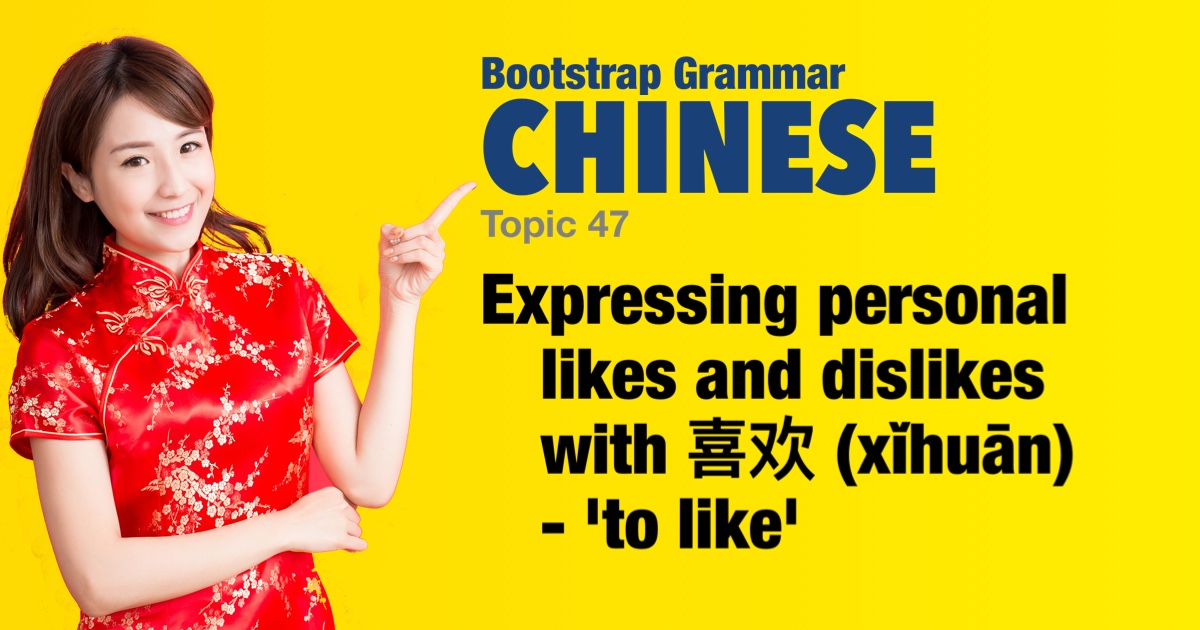Chinese grammar - Expressing personal likes and dislikes with 喜欢 (xǐhuān) - 'to like' |
|||
|
|||
The Chinese verb 喜欢 (xǐhuān) means 'to like' or 'to be fond of'. It is the most common way to express personal preferences, interests, and feelings of liking toward people, things, activities, or experiences. 喜欢 can be used to with both nouns and gerund nouns (verbs with ~ing). Dislike can be expressed by adding the negating particle 不 (bù). |
| Examples: | |
|
她喜欢他。
tā xǐhuān tā. She likes him. |
|
|
我们喜欢这个地方。
wǒmen xǐhuān zhè ge dìfāng. We like this place. |
|
|
他喜欢看电影。
tā xǐhuān kàn diànyǐng. He likes watching movies. |
|
|
他们不喜欢运动。
tāmen bù xǐhuān yùndòng. They don't like sports.
|
|
|
她不喜欢他。
tā bù xǐhuān tā. She doesn't like him. |
|
|
他们喜欢运动吗?
tāmen xǐhuān yùndòng ma? Do they like sports? |
|
|
他们不喜欢青苹果。
tāmen bù xǐhuān qīng píngguǒ. They do not like green apples.
|
|
|
我不喜欢吃苹果。
wǒ bù xǐhuān chī píngguǒ. I don't like eating apples.
|
|
|
我不喜欢旅行。
wǒ bù xǐhuān lǚxíng. I don't like traveling.
|
|
|
她喜欢唱歌吗?
tā xǐhuān chànggē ma? Does she like singing? |
|
|
她不喜欢跳舞。
tā bù xǐhuān tiàowǔ. She doesn't like dancing.
|
|
|
我们不喜欢这个地方。
wǒmen bù xǐhuān zhè ge dìfāng. We don't like this place. |
|
|
我喜欢冷的天气。
wǒ xǐhuān lěng de tiānqì. I like the cold weather. |
|
|
他不喜欢很热的天气。
tā bù xǐhuān hěn rè de tiānqì. He does not like the very hot weather. |
|
 |
|



 Here the verb
Here the verb 